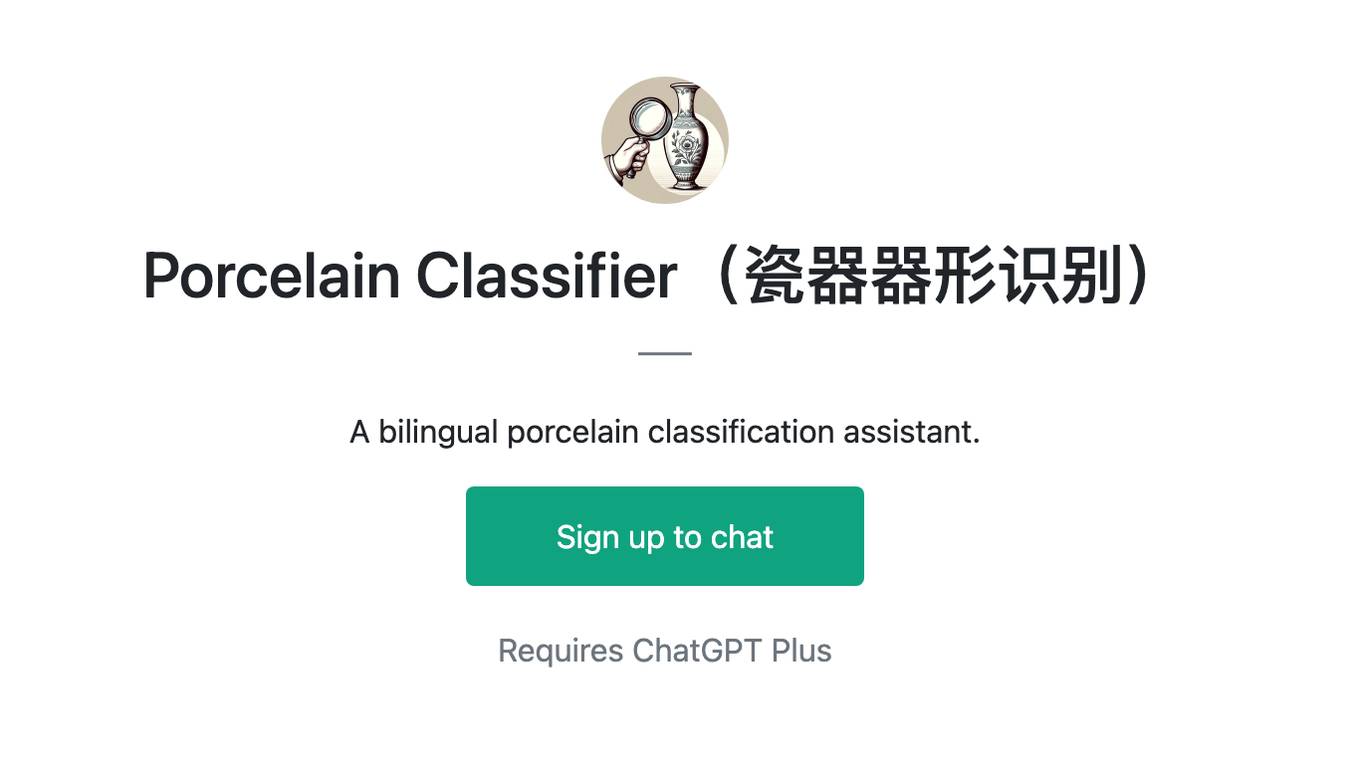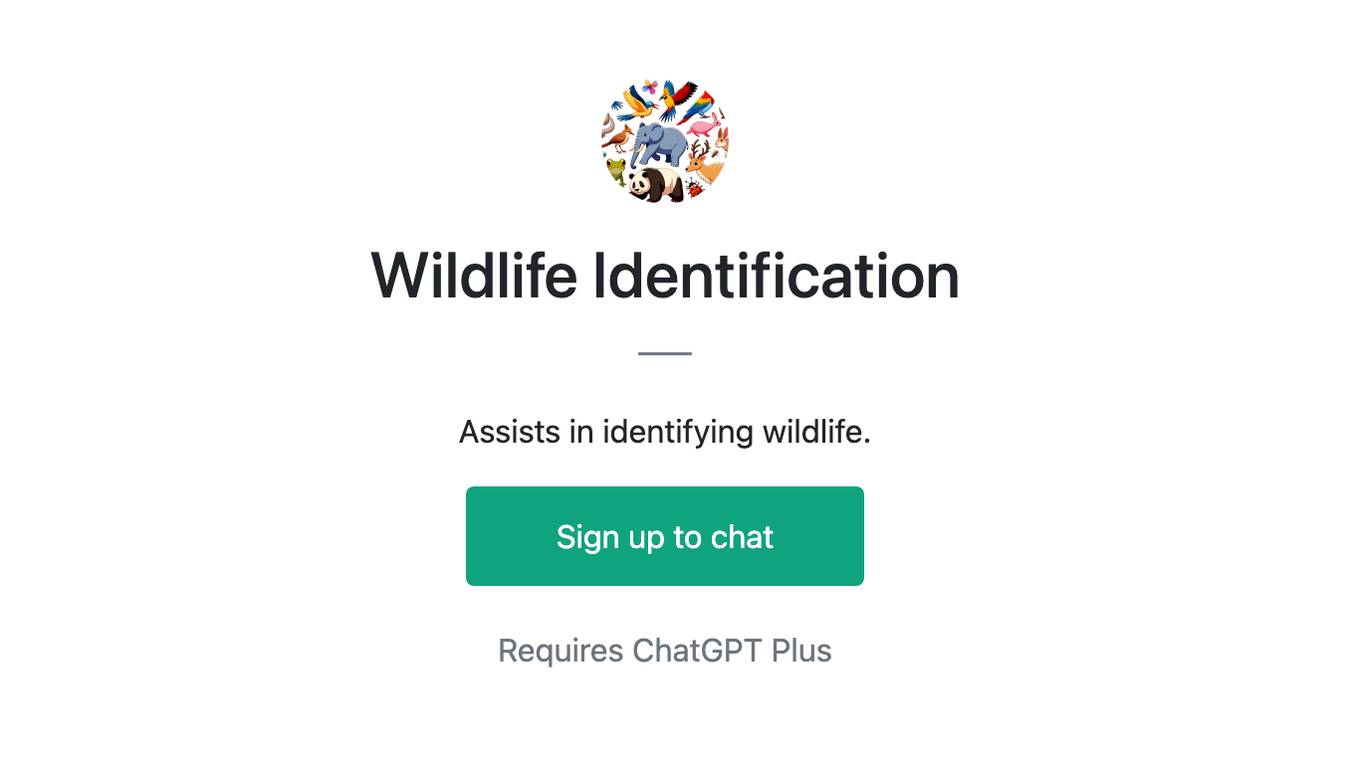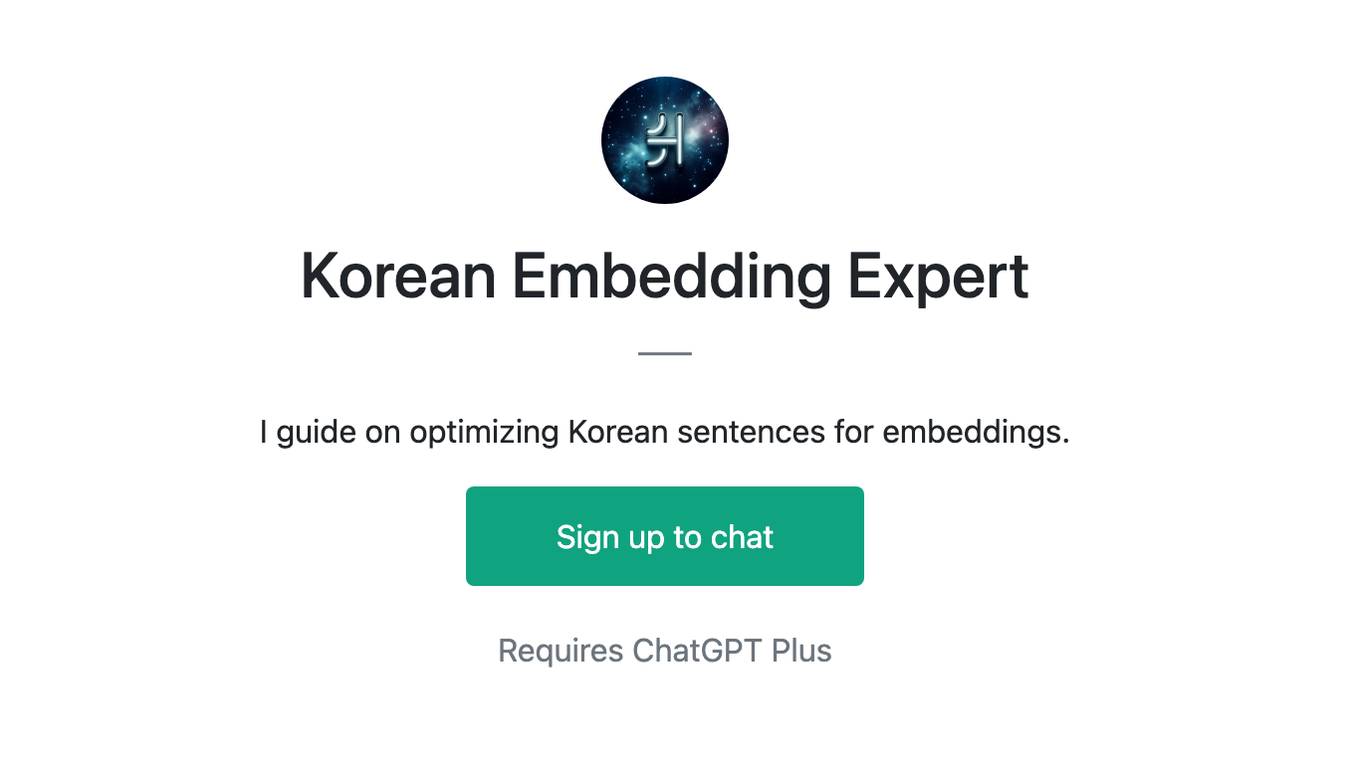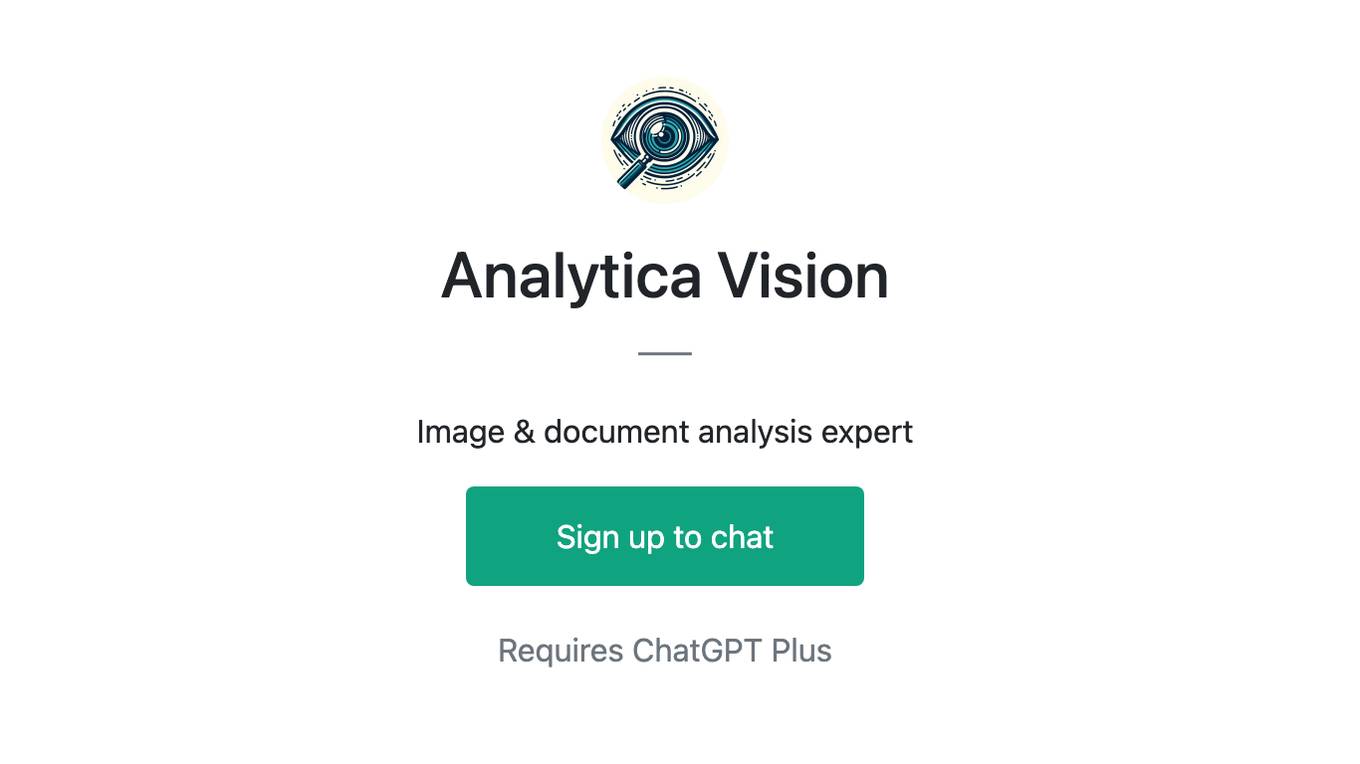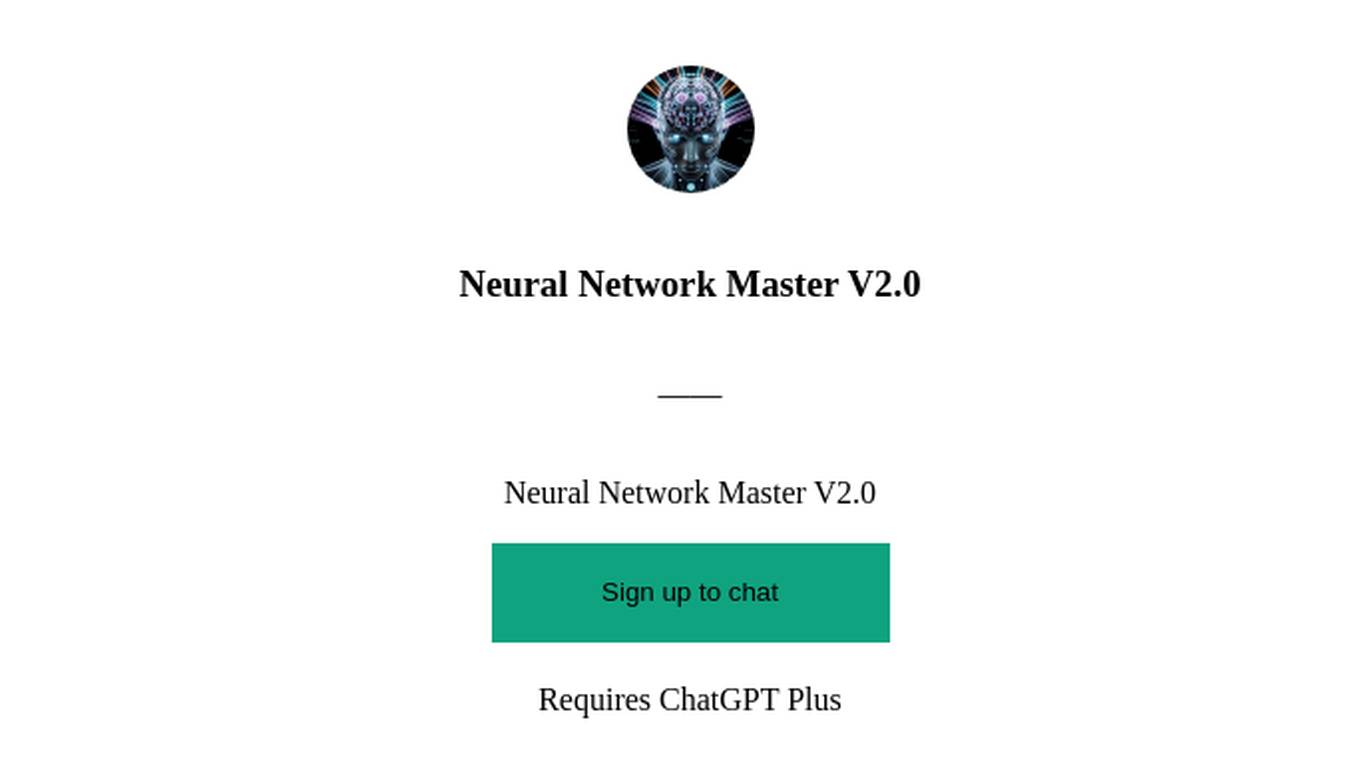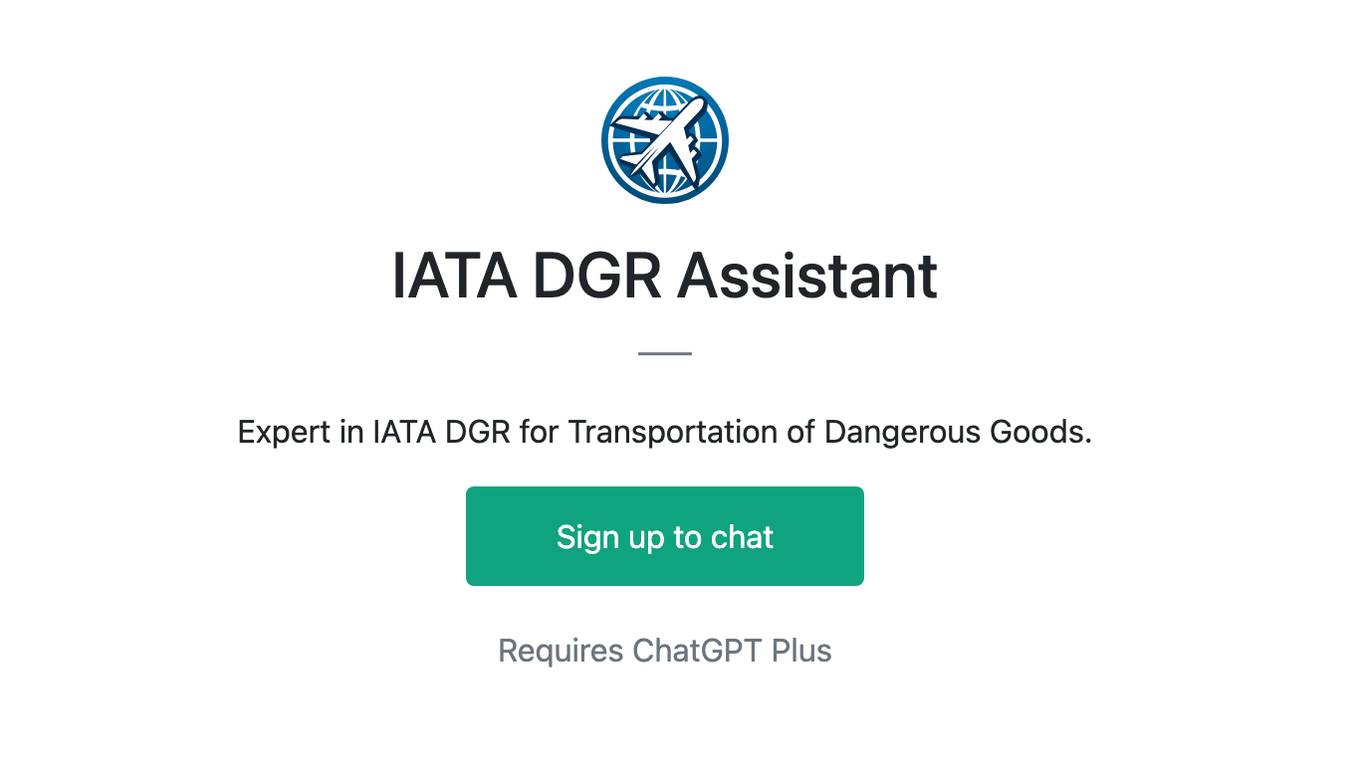Best AI tools for< Classify Art >
20 - AI tool Sites
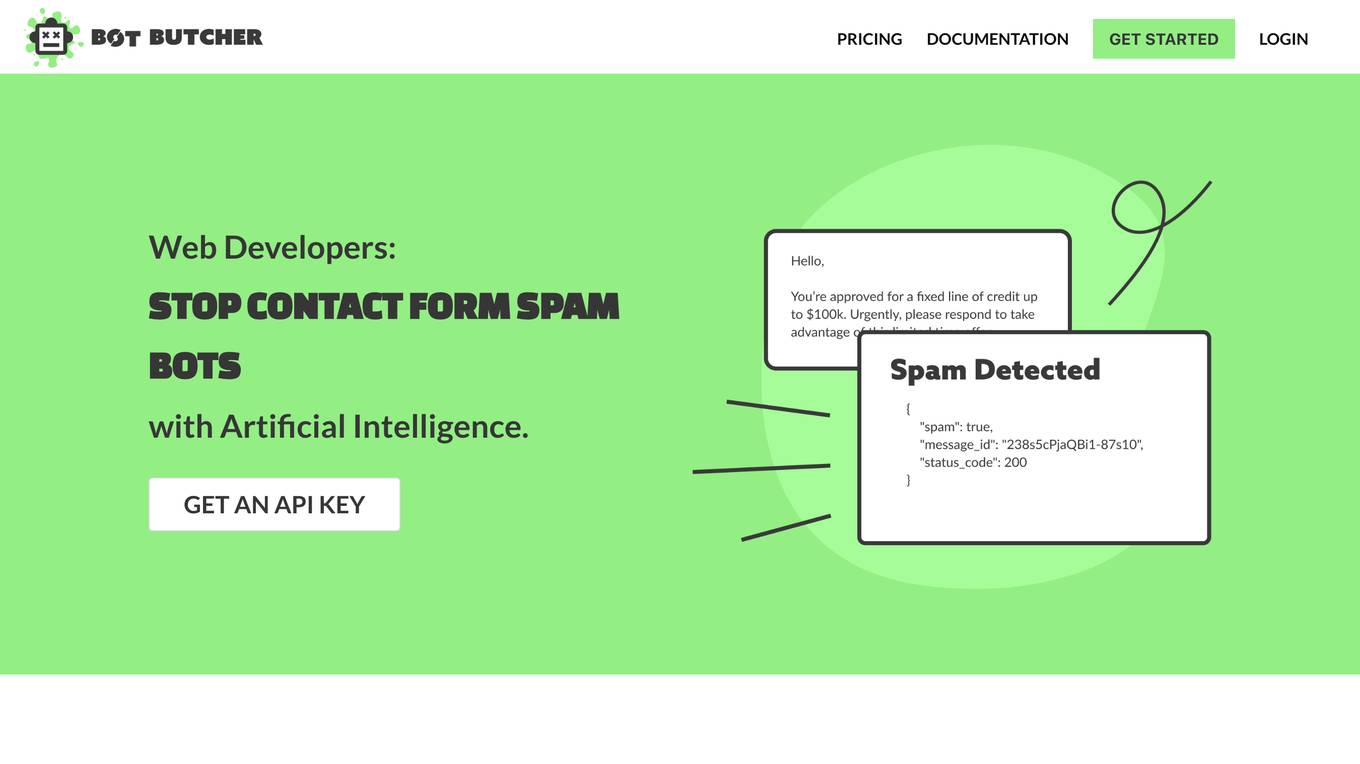
Bot Butcher
Bot Butcher is an AI-powered antispam API for websites that helps web developers combat contact form spam bots using artificial intelligence. It offers a modern alternative to reCAPTCHA, maximizing privacy by classifying messages as spam or not spam with a large language model. The tool is designed for enterprise scalability, vertical SaaS, and website builder apps, providing continuous model improvements and context-aware classification while focusing on privacy.
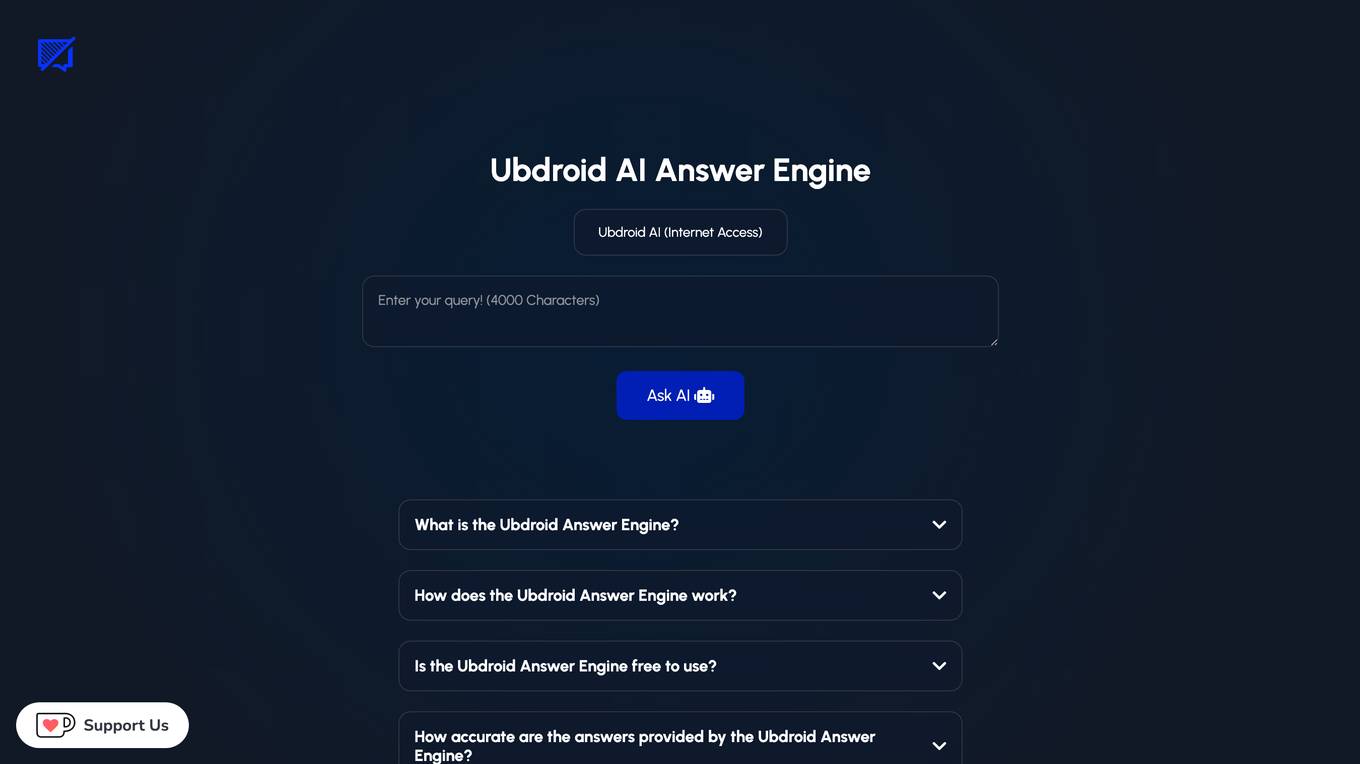
Ubdroid AI Answer Engine
Ubdroid AI Answer Engine is an AI-powered tool that utilizes various open-source LLMs to provide answers to user queries. It works by processing user queries and fetching relevant information from these LLMs. The accuracy of the answers depends on the quality and relevance of the data provided by the LLMs. The free version of the tool has a request limit of 10 requests per minute. If a model is not working, users can select another model.
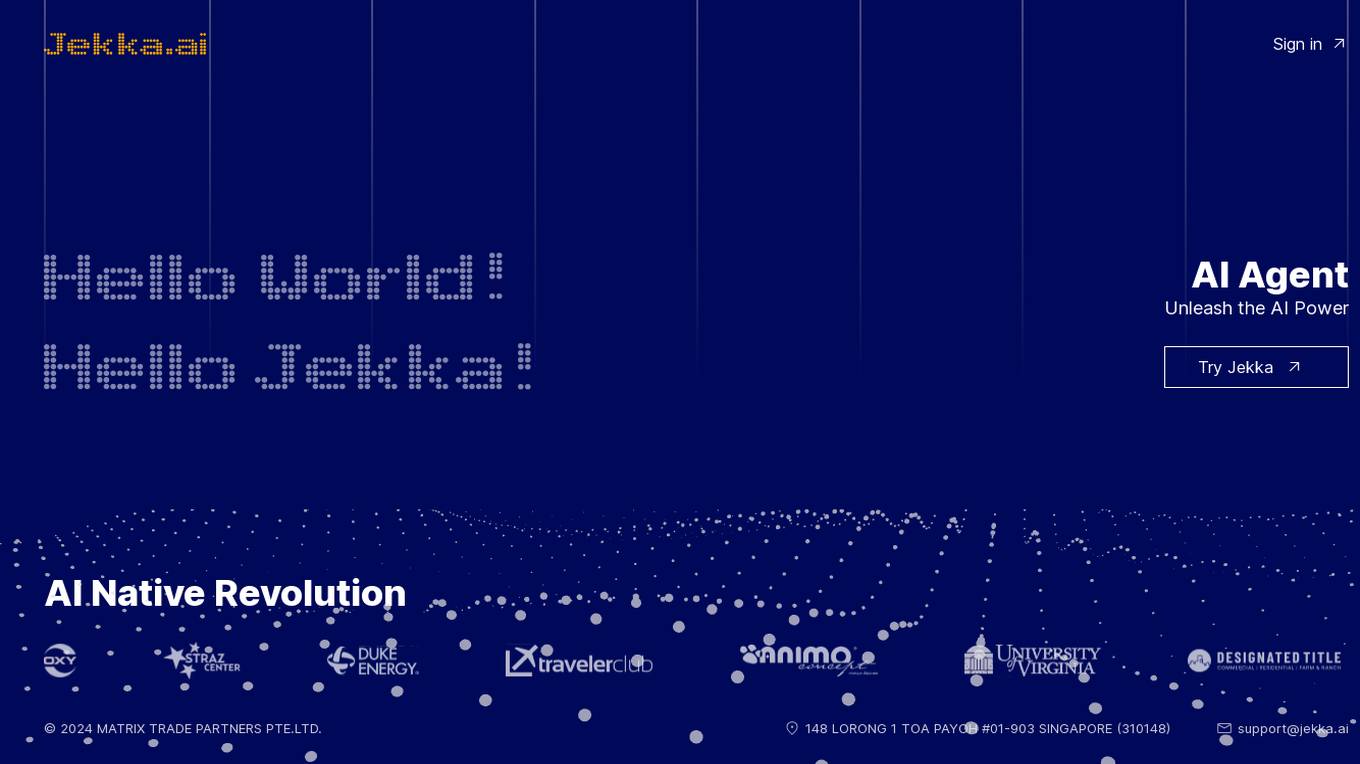
Jekka
Jekka is an AI-powered platform that helps businesses automate their workflows and processes. It offers a range of features, including natural language processing, machine learning, and computer vision, that can be used to create custom AI solutions. Jekka is designed to be easy to use, even for those with no prior experience with AI. It provides a drag-and-drop interface that makes it simple to create and deploy AI models.
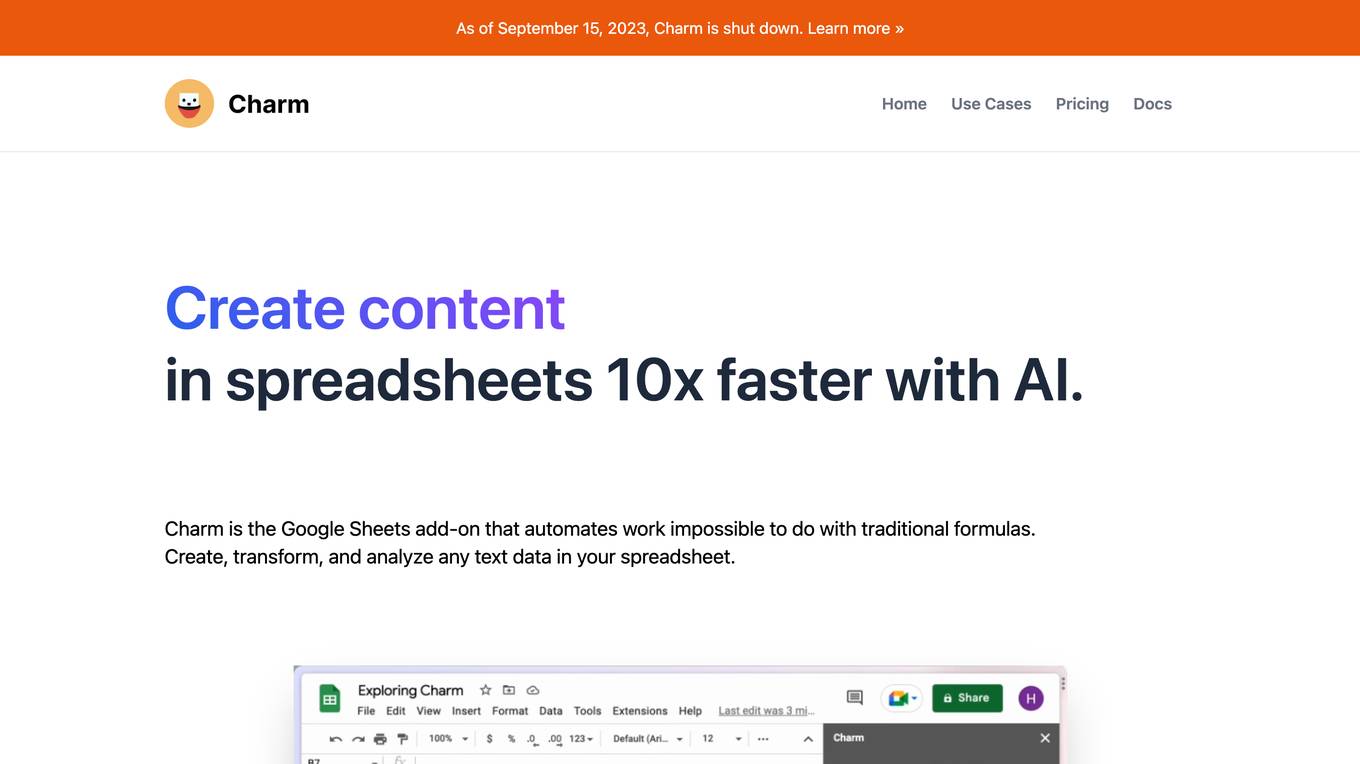
Charm
Charm is an AI-powered spreadsheet assistant that helps users clean messy data, create content, summarize feedback, classify sales leads, and generate dummy data. It is a Google Sheets add-on that automates tasks that are impossible to do with traditional formulas. Charm is used by hundreds of analysts, marketers, product managers, and more.
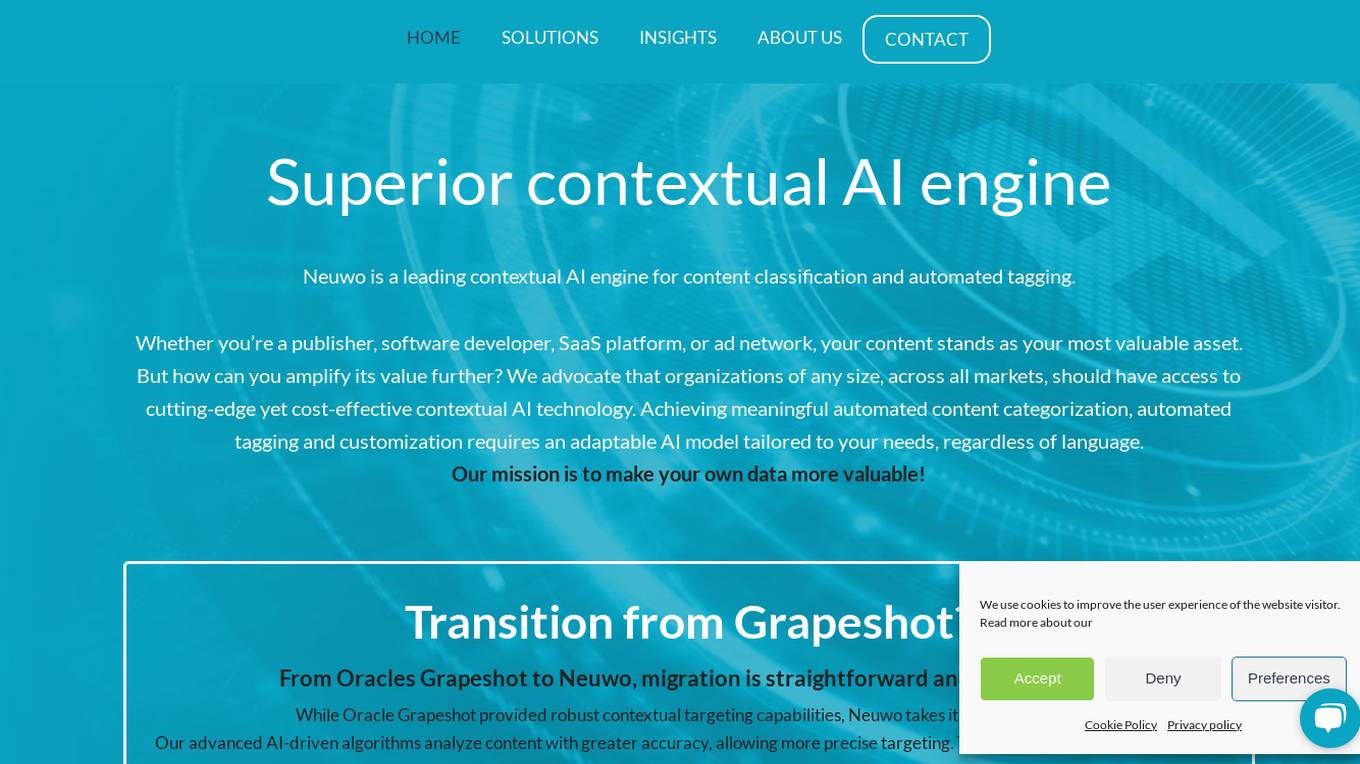
Neuwo
Neuwo is a leading contextual AI engine for content classification and automated tagging. It advocates that organizations of any size should have access to cutting-edge yet cost-effective contextual AI technology for meaningful automated content categorization and customization. The platform enables users to transition seamlessly from Oracle Grapeshot to Neuwo, offering advanced AI-driven algorithms for more precise targeting and increased engagement. Neuwo's technology ensures reaching the right audience at the right time, without the need for contracts. The platform enriches valuable data through intelligent content processing, brand safety, and suitability, and content activation, adding value to digital properties and businesses.
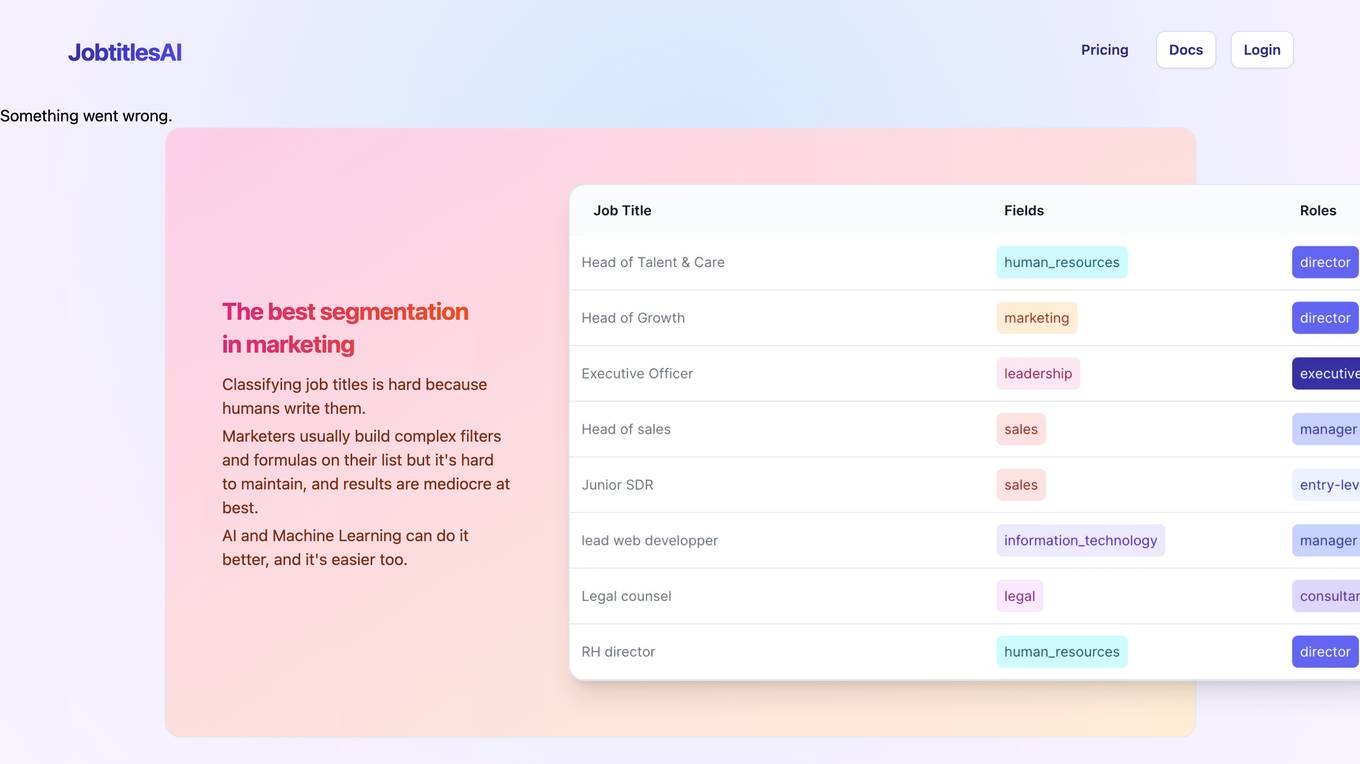
JobtitlesAI
JobtitlesAI is a machine-learning API that sorts job titles into two categories: field (sales, finance, I.T...) and position (executive, management, assistant...). It can be used in spreadsheets, Hubspot, or via API. JobtitlesAI is multilingual and GDPR compliant.
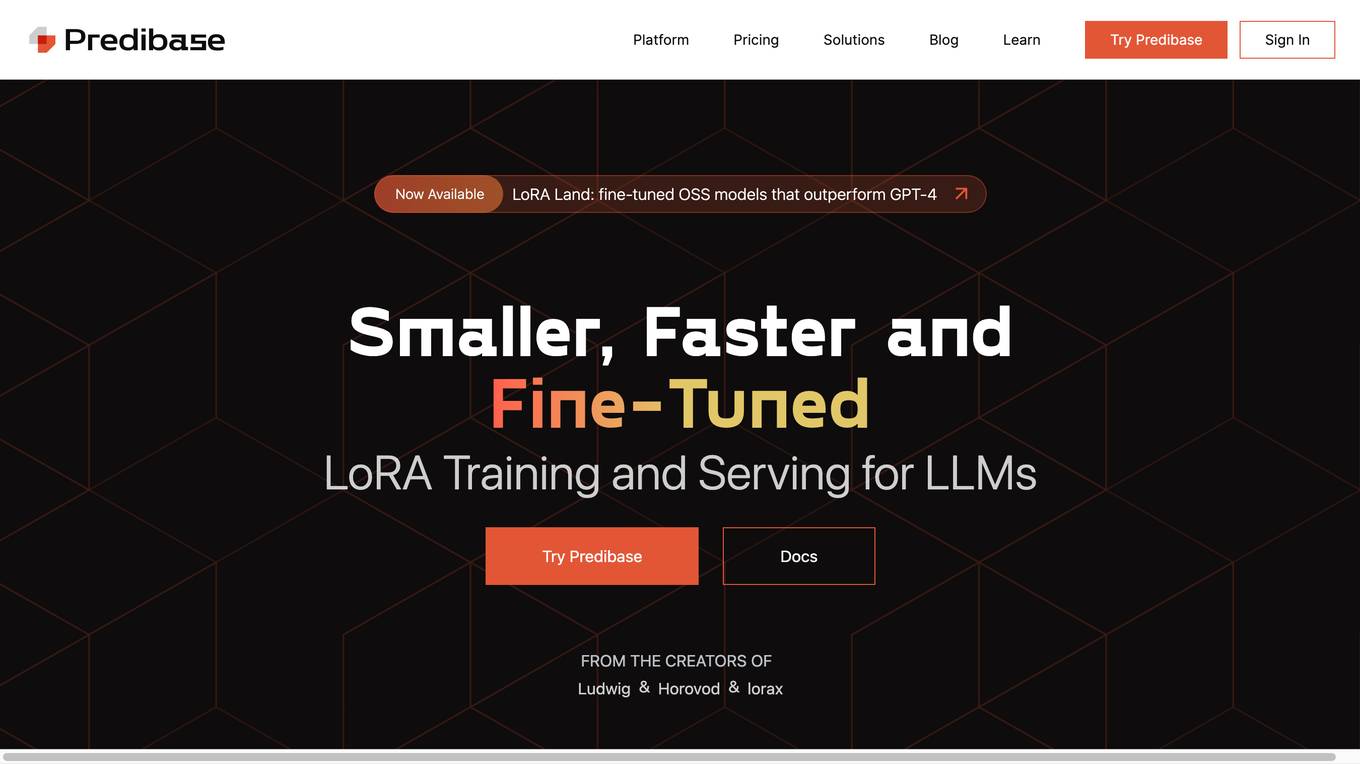
Predibase
Predibase is a platform for fine-tuning and serving Large Language Models (LLMs). It provides a cost-effective and efficient way to train and deploy LLMs for a variety of tasks, including classification, information extraction, customer sentiment analysis, customer support, code generation, and named entity recognition. Predibase is built on proven open-source technology, including LoRAX, Ludwig, and Horovod.
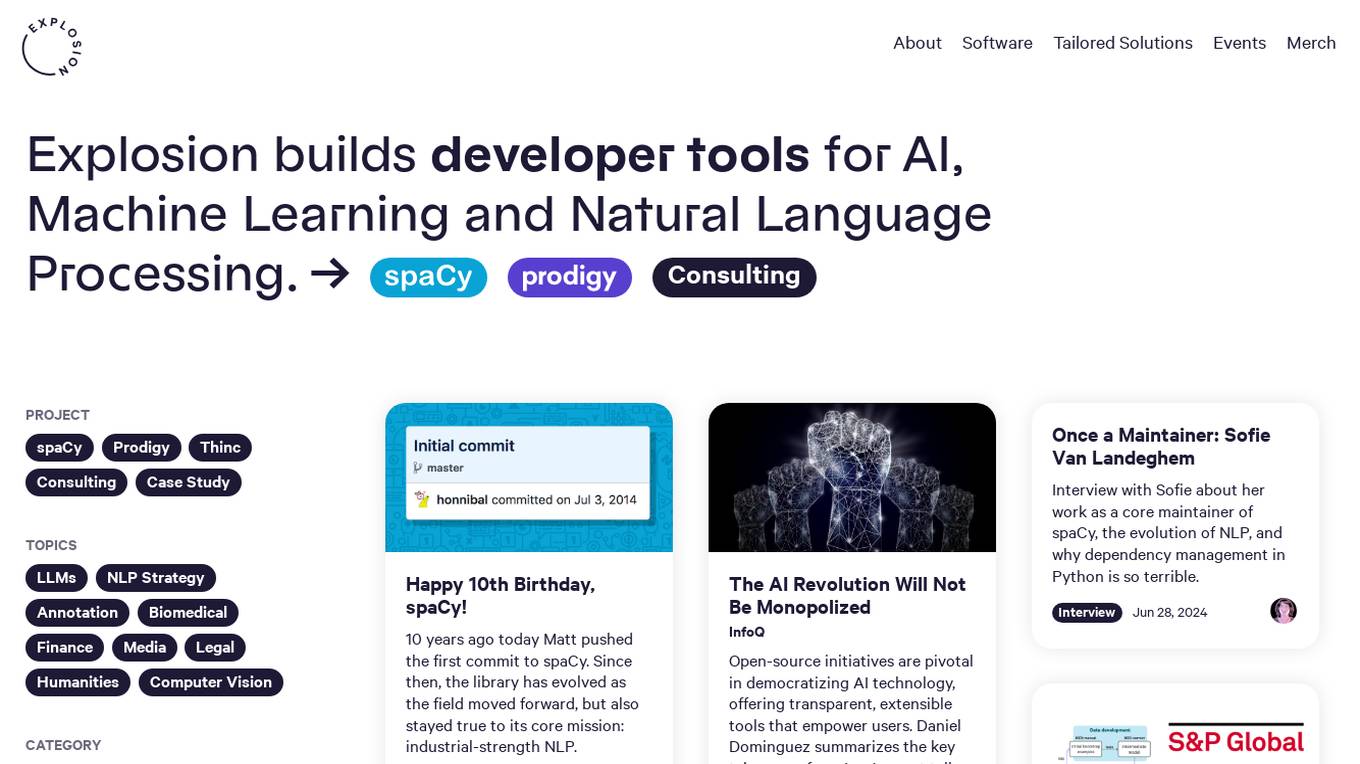
Explosion
Explosion is a software company specializing in developer tools and tailored solutions for AI, Machine Learning, and Natural Language Processing (NLP). They are the makers of spaCy, one of the leading open-source libraries for advanced NLP. The company offers consulting services and builds developer tools for various AI-related tasks, such as coreference resolution, dependency parsing, image classification, named entity recognition, and more.
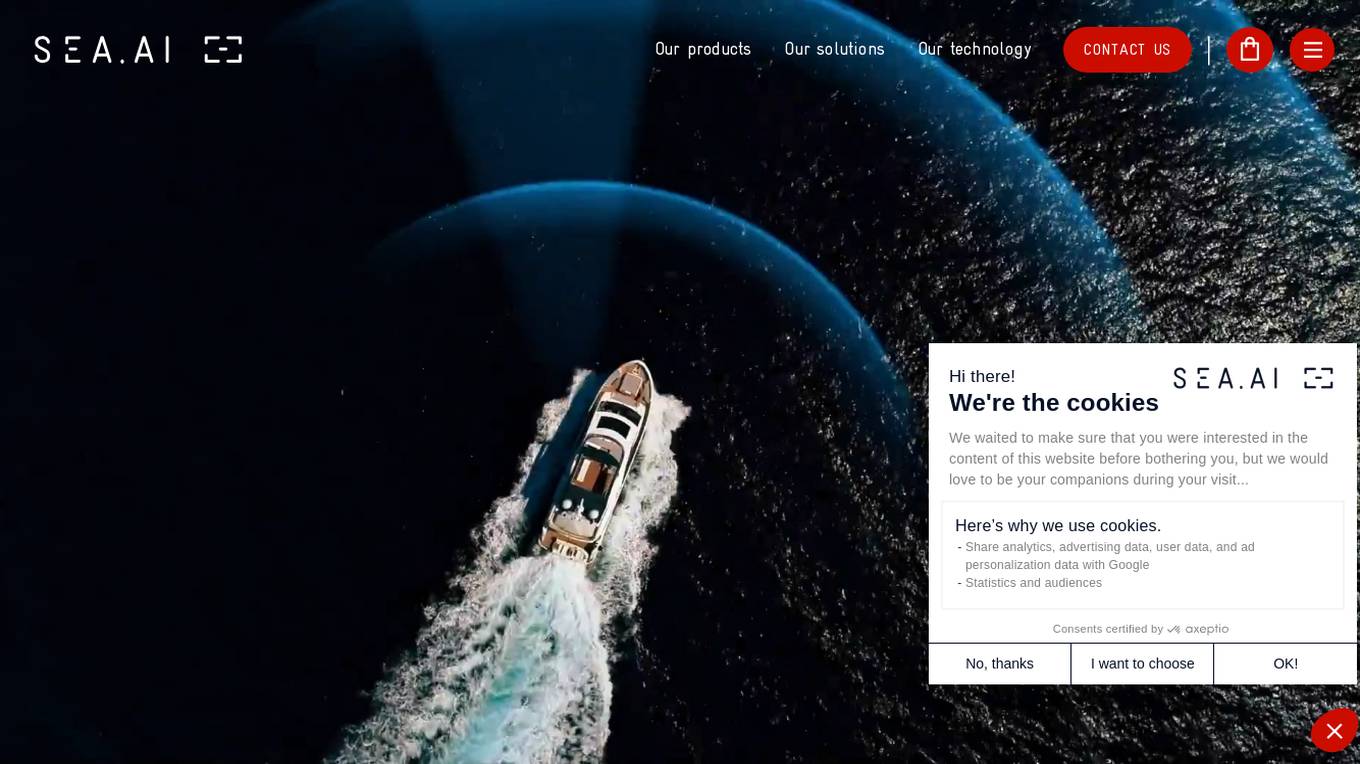
SEA.AI
SEA.AI is an AI tool that provides Machine Vision for Safety at Sea. It utilizes the latest camera technology combined with artificial intelligence to detect and classify objects on the surface of the water, including unsignalled craft, floating obstacles, buoys, kayaks, and persons overboard. The application offers various solutions for sailing, commercial, motor, maritime surveillance, search & rescue, and government sectors. SEA.AI aims to enhance safety and convenience for sailors by leveraging AI technology for early detection of potential hazards at sea.

Ceacle Pipeline
Ceacle Pipeline is an AI-powered platform designed to streamline content creation workflows by offering automated tools for creating product mockups, scenes, and managing accounts efficiently. The platform leverages AI technology to help users automate tasks, save time, and focus on core activities. With Ceacle Pipeline, users can easily create custom workflows, generate inspiration boards, resize images, classify images for e-commerce, vectorize images, smart resize images for social media, and upscale, convert, and compress images. The platform aims to simplify content creation processes and enhance productivity for creators, designers, photographers, and digital marketers.

Krater.ai
Krater.ai is an AI SuperApp that offers a wide range of artificial intelligence tools and applications to enhance productivity and efficiency. It provides users with a comprehensive suite of AI-powered solutions for various tasks, from data analysis to natural language processing. With its user-friendly interface and advanced algorithms, Krater.ai simplifies complex processes and empowers users to make data-driven decisions with ease.
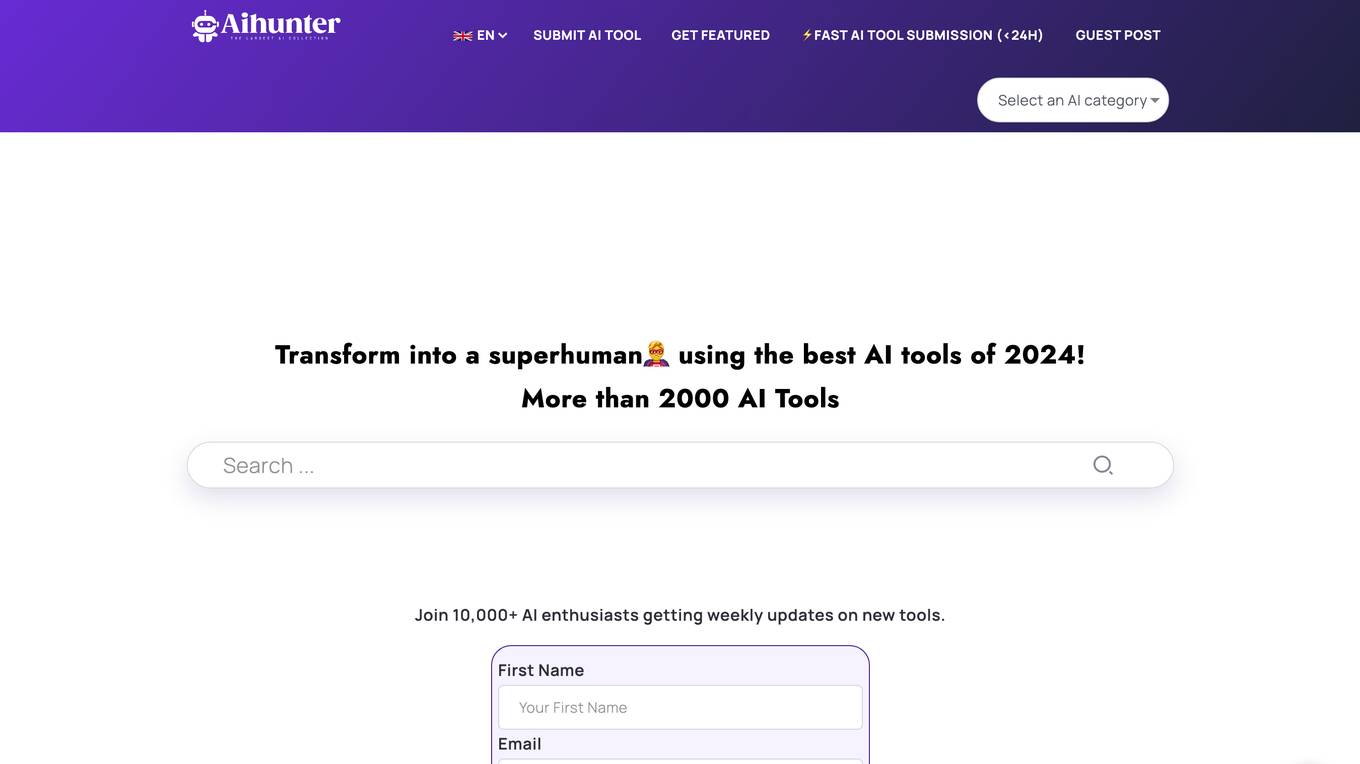
AI-Hunter.io
AI-Hunter.io is a comprehensive AI tools directory that provides access to over 2000 AI tools across various categories. It offers a user-friendly interface for browsing and filtering tools based on categories, features, and pricing. The website also includes a blog section with AI-related news and articles, as well as a glossary of AI terms and a privacy policy.
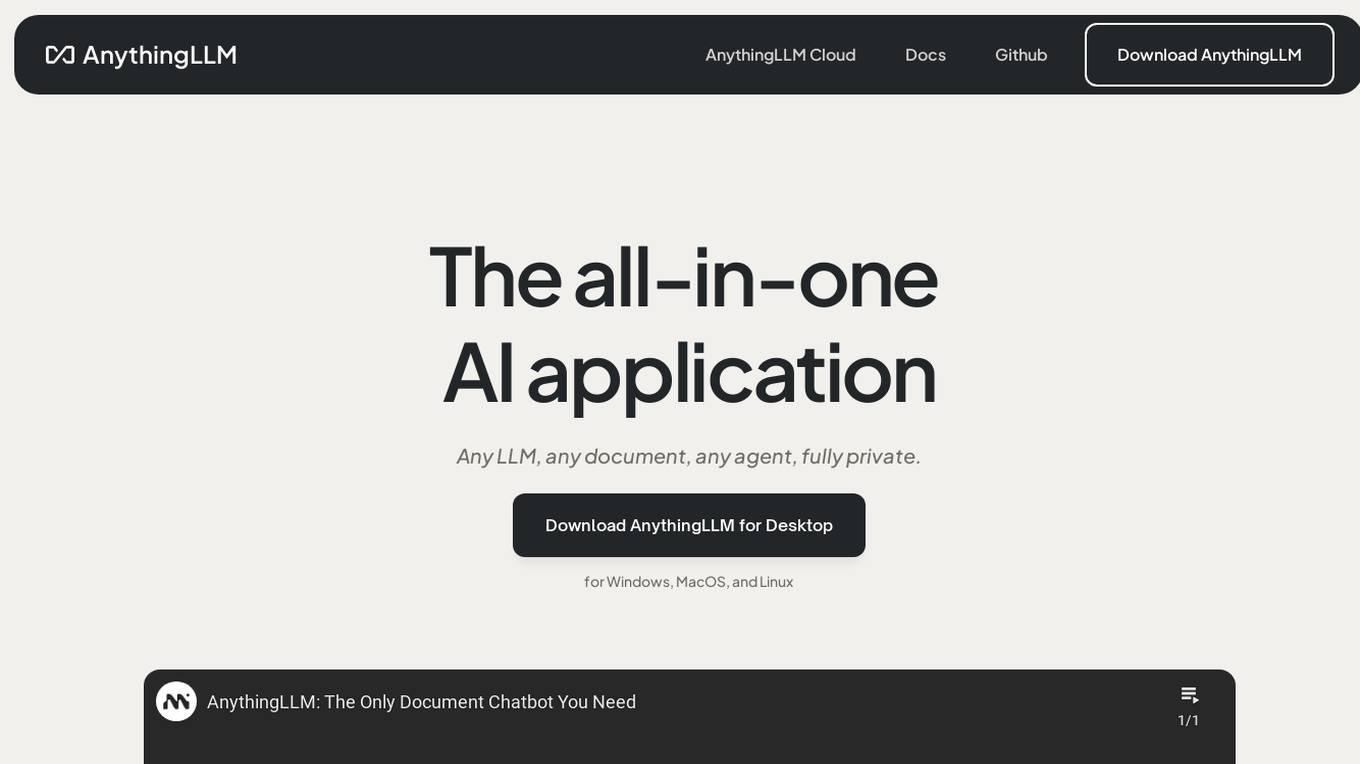
AnythingLLM
AnythingLLM is an all-in-one AI application designed for everyone. It offers a suite of tools for working with LLM (Large Language Models), documents, and agents in a fully private environment. Users can install AnythingLLM on their desktop for Windows, MacOS, and Linux, enabling flexible one-click installation and secure, fully private operation without internet connectivity. The application supports custom models, including enterprise models like GPT-4, custom fine-tuned models, and open-source models like Llama and Mistral. AnythingLLM allows users to work with various document formats, such as PDFs and word documents, providing tailored solutions with locally running defaults for privacy.
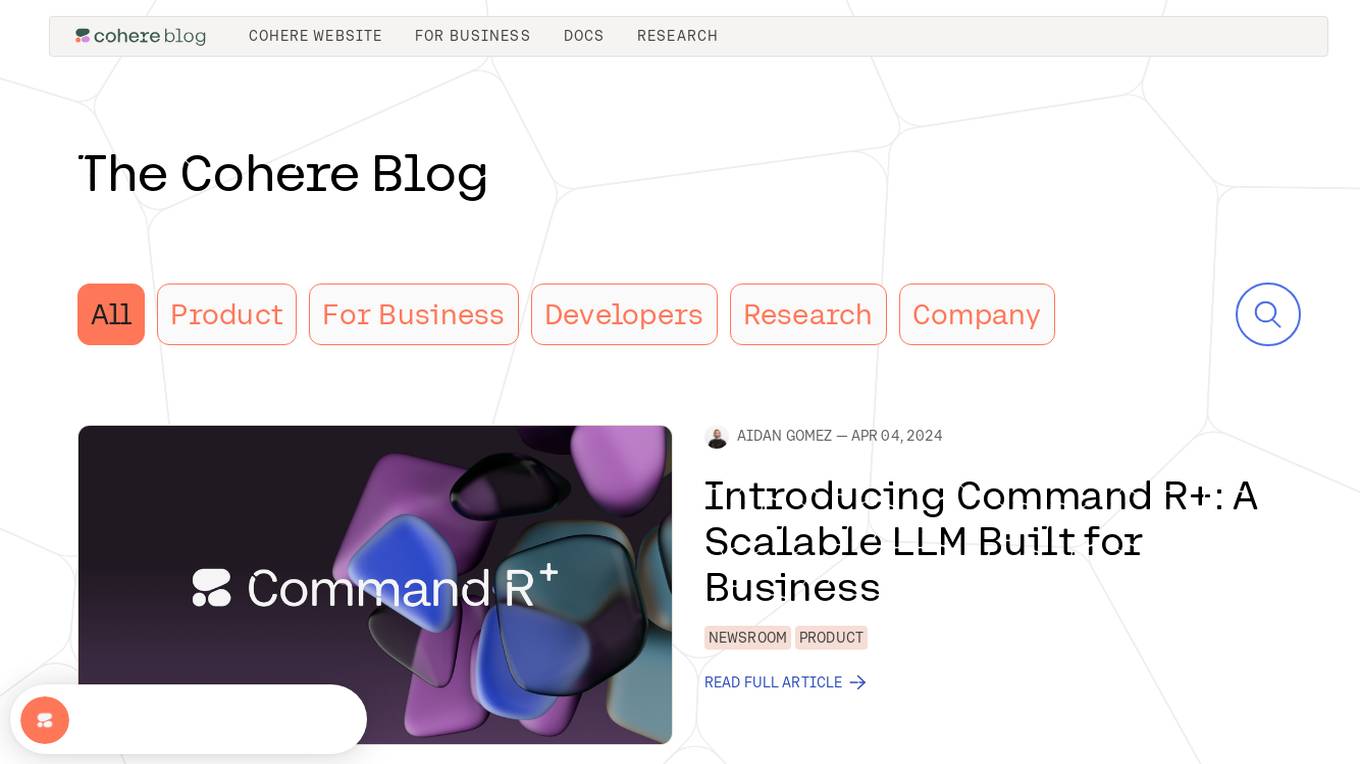
Cohere
Cohere is a leading provider of artificial intelligence (AI) tools and services. Our mission is to make AI accessible and useful to everyone, from individual developers to large enterprises. We offer a range of AI tools and services, including natural language processing, computer vision, and machine learning. Our tools are used by businesses of all sizes to improve customer service, automate tasks, and gain insights from data.

Apply AI
This website provides a platform for users to apply artificial intelligence (AI) to their work. Users can access a variety of AI tools and resources, including pre-trained models, datasets, and tutorials. The website also provides a community forum where users can connect with other AI enthusiasts and experts.

Gamma.AI
Gamma.AI is a cloud-based data loss prevention (DLP) solution that uses artificial intelligence (AI) to protect sensitive data in SaaS applications. It provides real-time data discovery and classification, user behavior analytics, and automated remediation capabilities. Gamma.AI is designed to help organizations meet compliance requirements and protect their data from unauthorized access, theft, and loss.
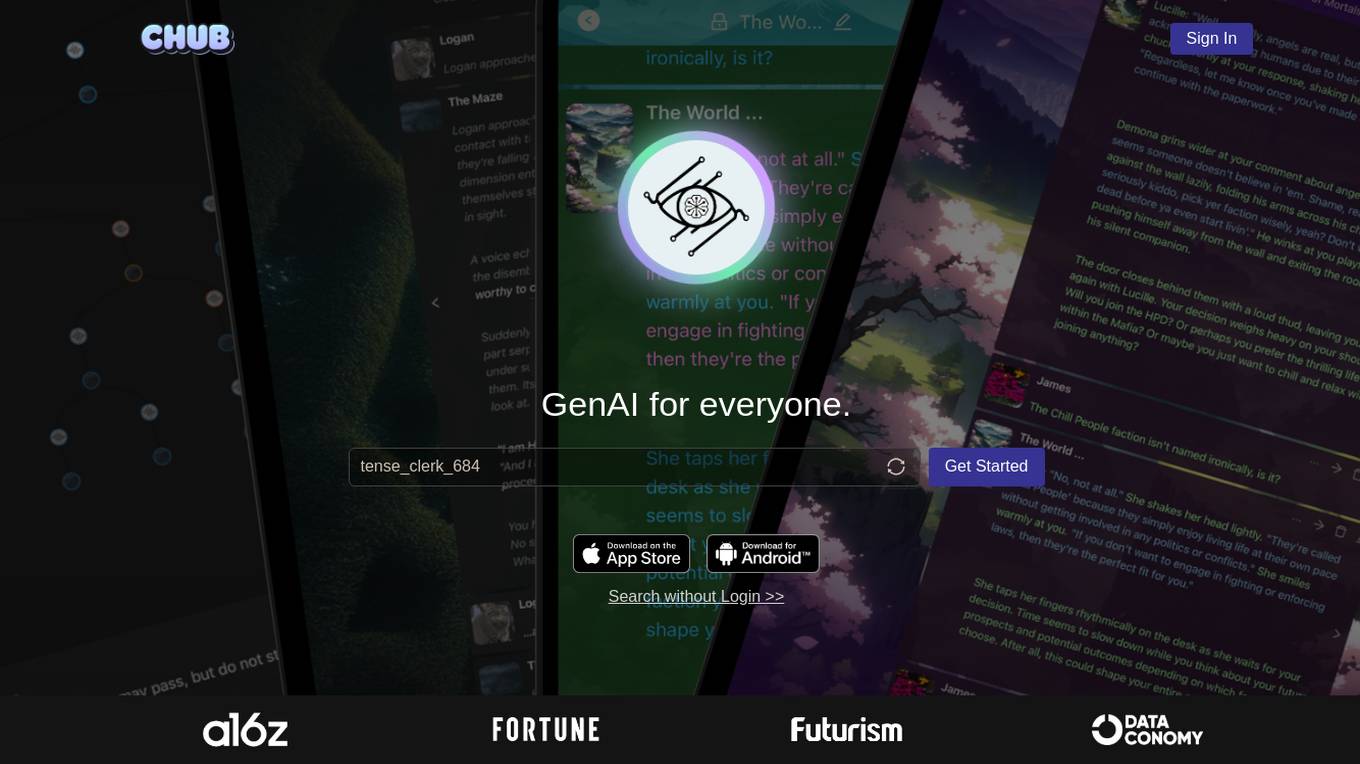
Chub Venus AI
Chub Venus AI is an advanced artificial intelligence tool designed to assist users in various tasks. It utilizes cutting-edge AI algorithms to provide accurate and efficient solutions. The tool is user-friendly and offers a wide range of features to enhance productivity and decision-making processes.
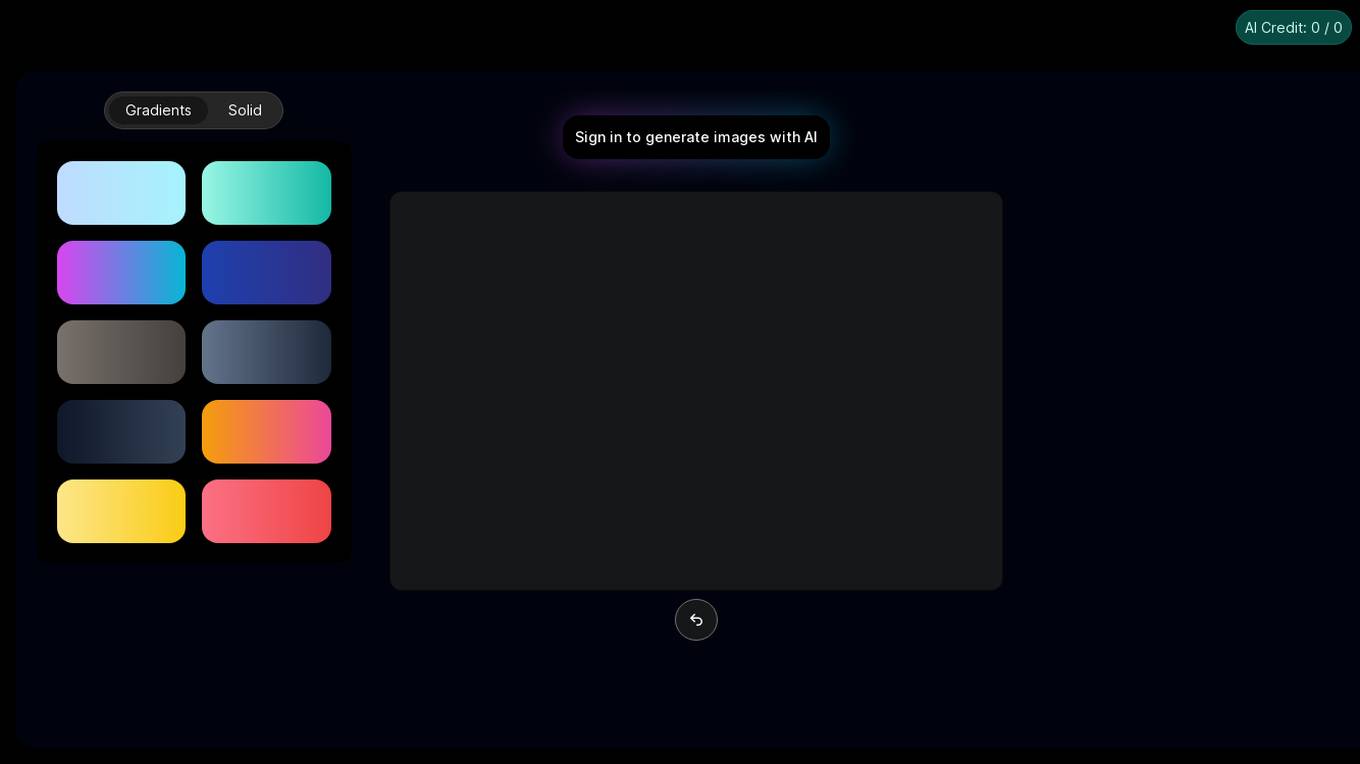
Image Bear AI
Image Bear AI is an advanced image recognition tool that utilizes artificial intelligence to analyze and identify objects within images. The application is designed to assist users in various industries such as e-commerce, security, and healthcare by providing accurate and efficient image analysis capabilities. With its cutting-edge technology, Image Bear AI offers a user-friendly interface and fast processing speeds, making it a valuable tool for businesses looking to streamline their image recognition processes.

Hanooman.AI
Hanooman.AI is an advanced artificial intelligence tool that leverages machine learning algorithms to provide intelligent solutions for various industries. The application offers a wide range of features such as natural language processing, image recognition, predictive analytics, and personalized recommendations. With Hanooman.AI, users can automate repetitive tasks, gain valuable insights from data, and enhance decision-making processes. The platform is designed to be user-friendly and scalable, making it suitable for both individuals and businesses looking to harness the power of AI technology.
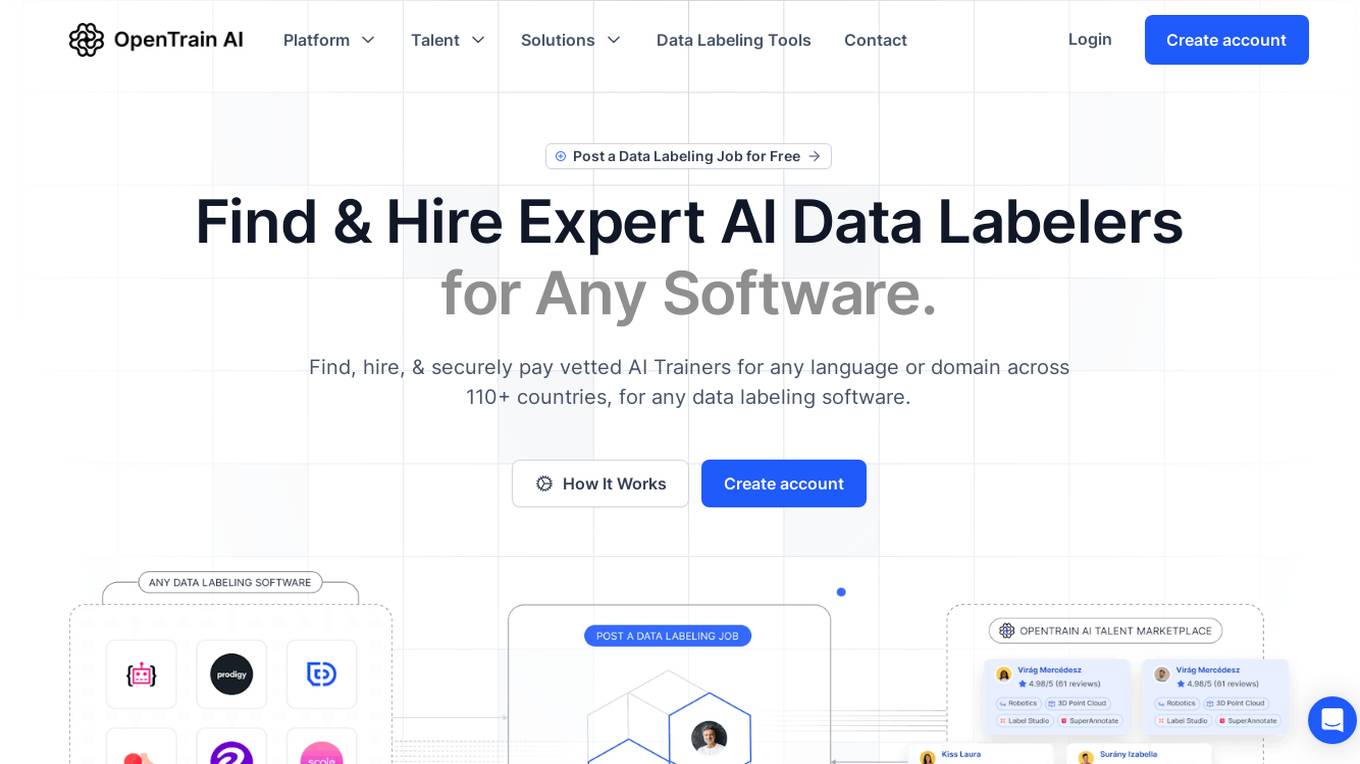
OpenTrain AI
OpenTrain AI is a data labeling marketplace that leverages artificial intelligence to streamline the process of labeling data for machine learning models. It provides a platform where users can crowdsource data labeling tasks to a global community of annotators, ensuring high-quality labeled datasets for training AI algorithms. With advanced AI algorithms and human-in-the-loop validation, OpenTrain AI offers efficient and accurate data labeling services for various industries such as autonomous vehicles, healthcare, and natural language processing.
0 - Open Source AI Tools
20 - OpenAI Gpts
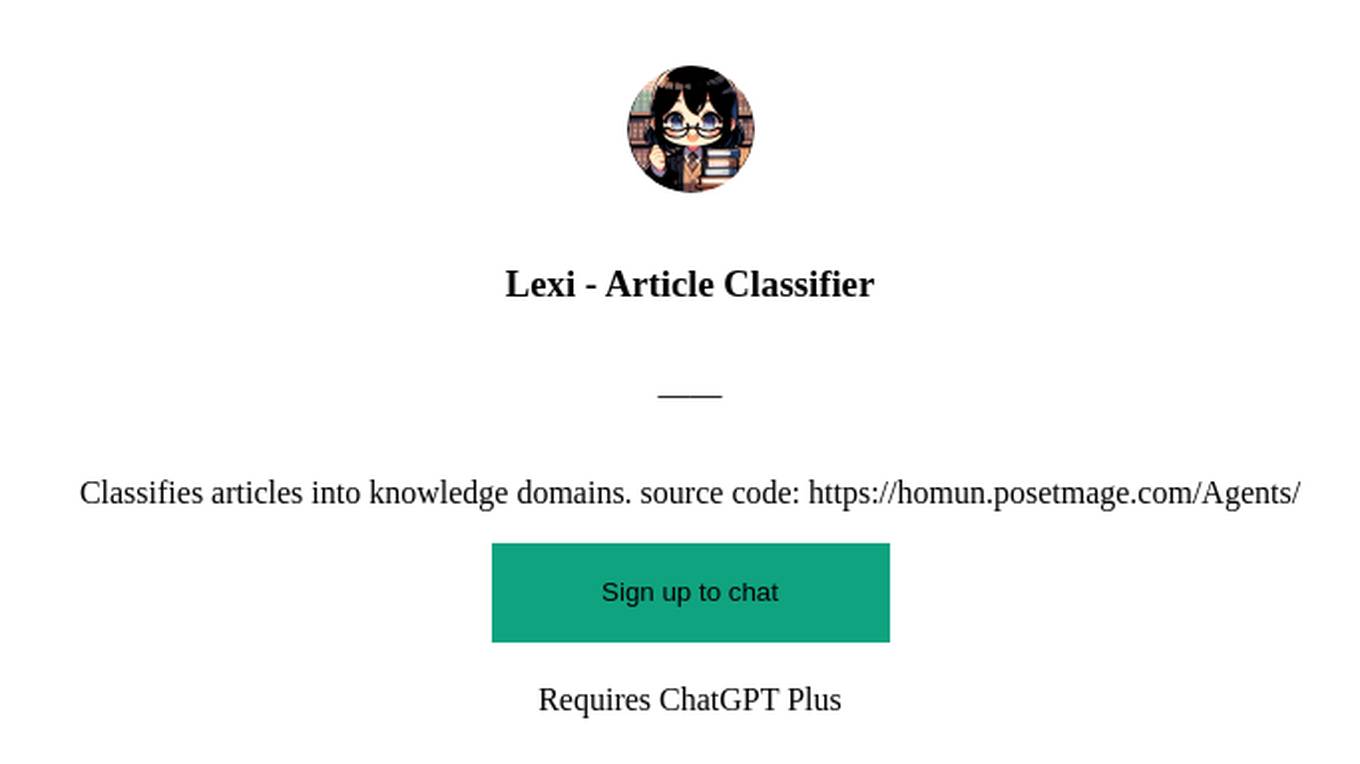
Lexi - Article Classifier
Classifies articles into knowledge domains. source code: https://homun.posetmage.com/Agents/
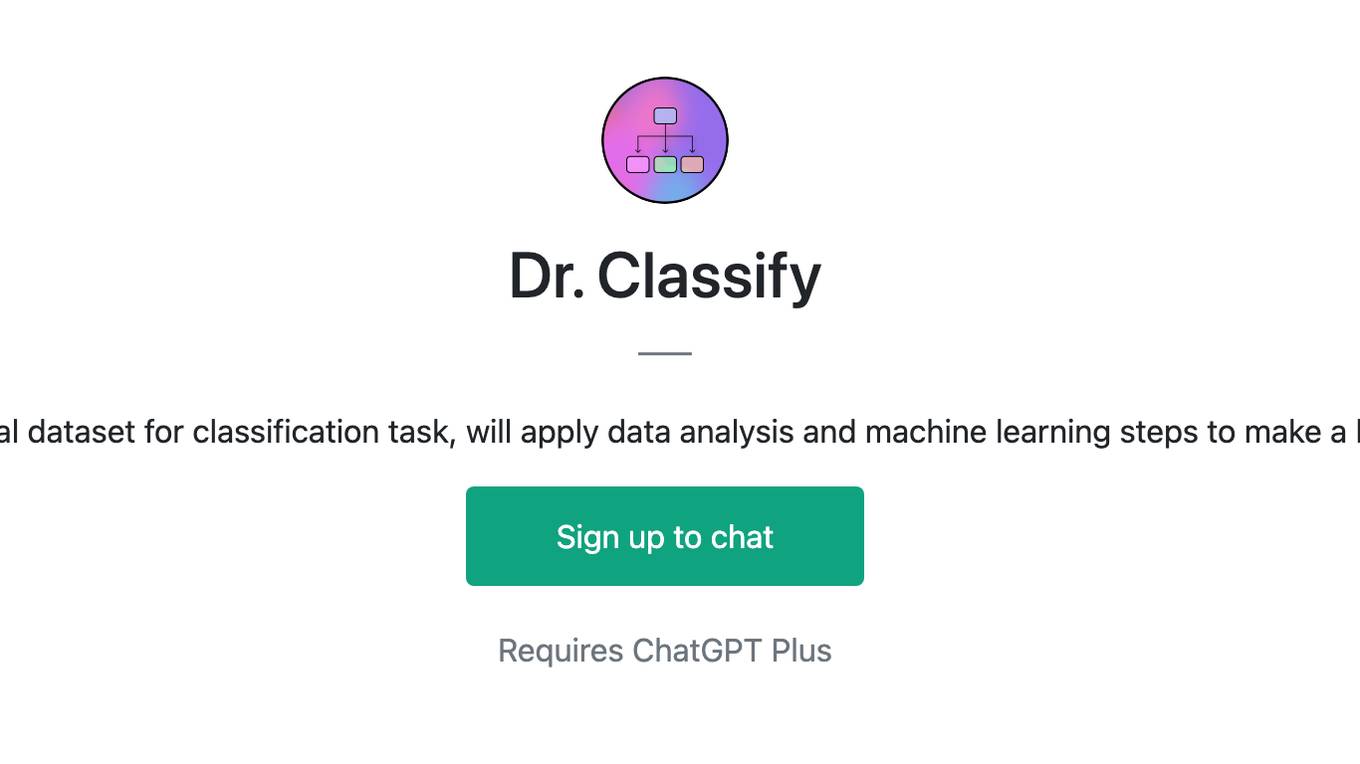
Dr. Classify
Just upload a numerical dataset for classification task, will apply data analysis and machine learning steps to make a best model possible.

Not Hotdog
What would you say if I told you there is an app on the market that can tell you if you have a hot dog or not a hot dog.
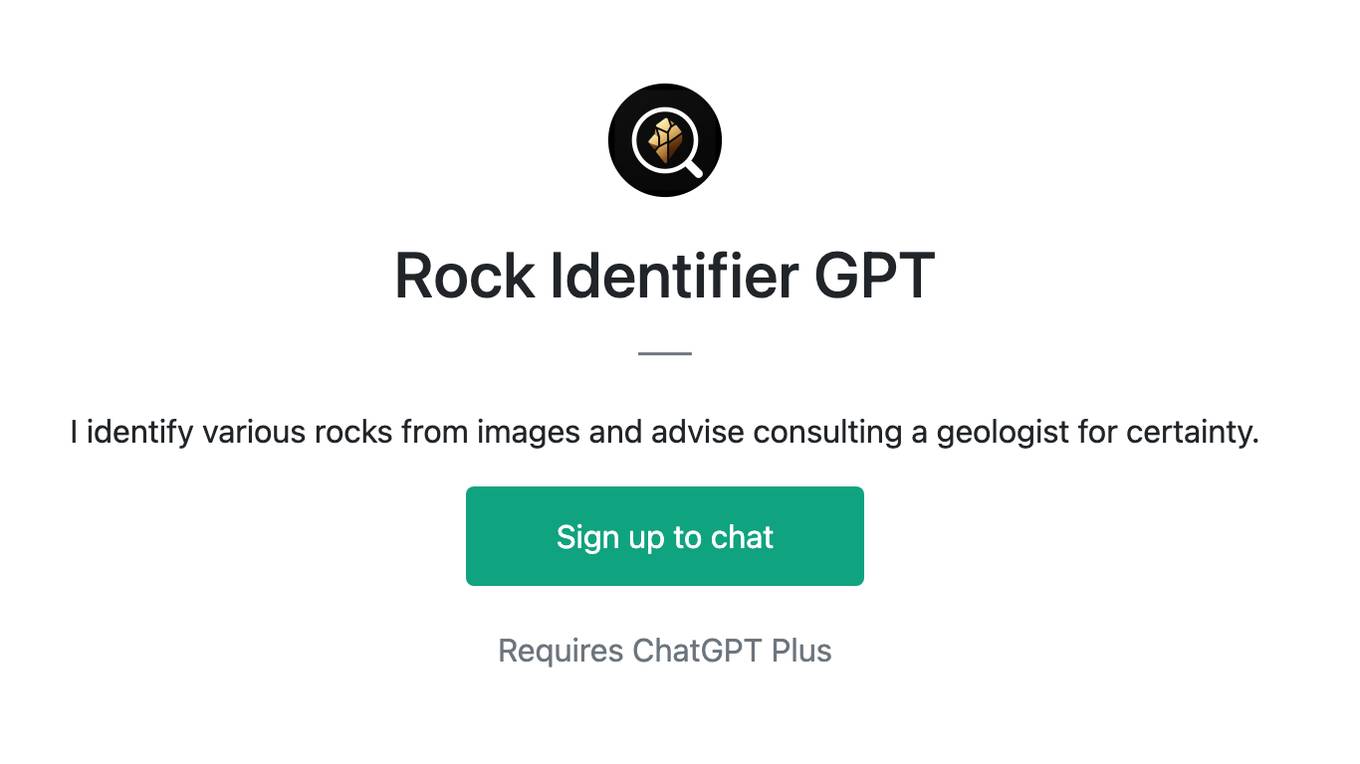
Rock Identifier GPT
I identify various rocks from images and advise consulting a geologist for certainty.
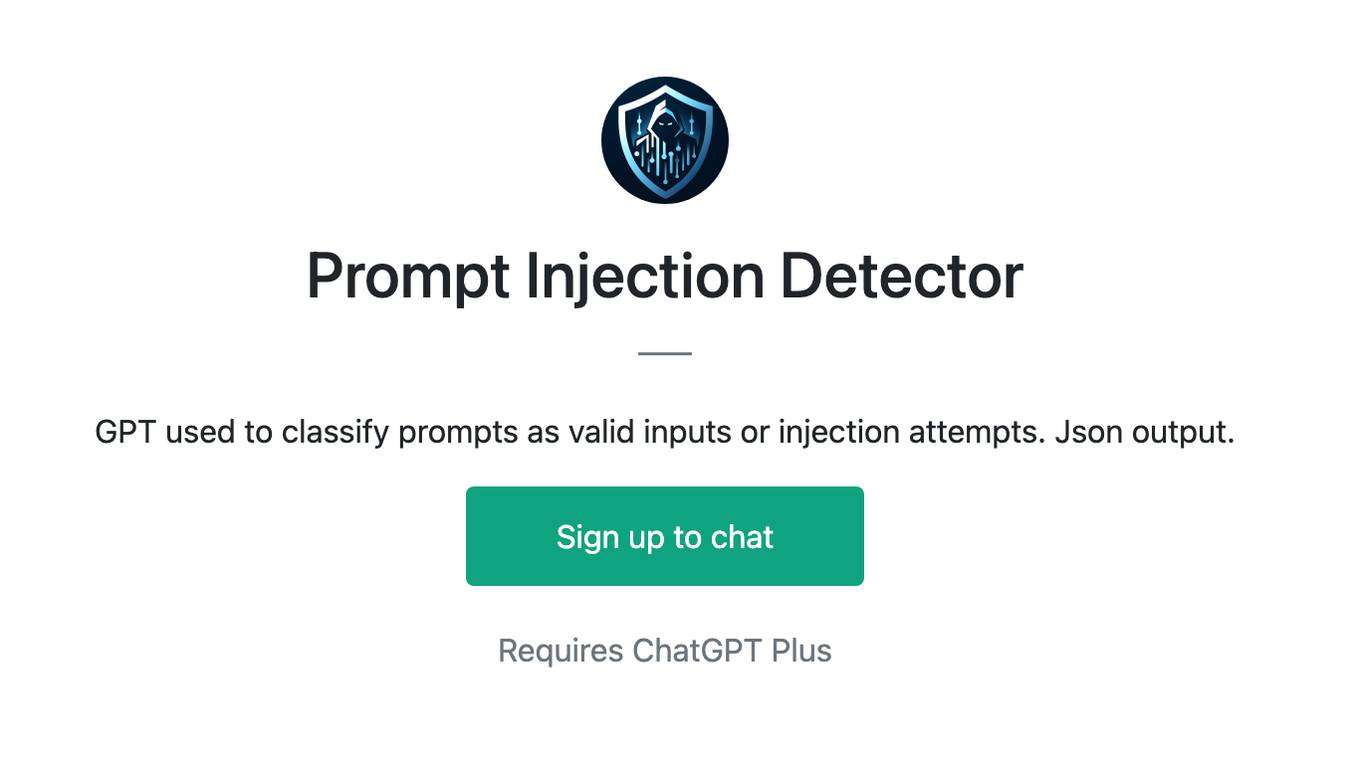
Prompt Injection Detector
GPT used to classify prompts as valid inputs or injection attempts. Json output.
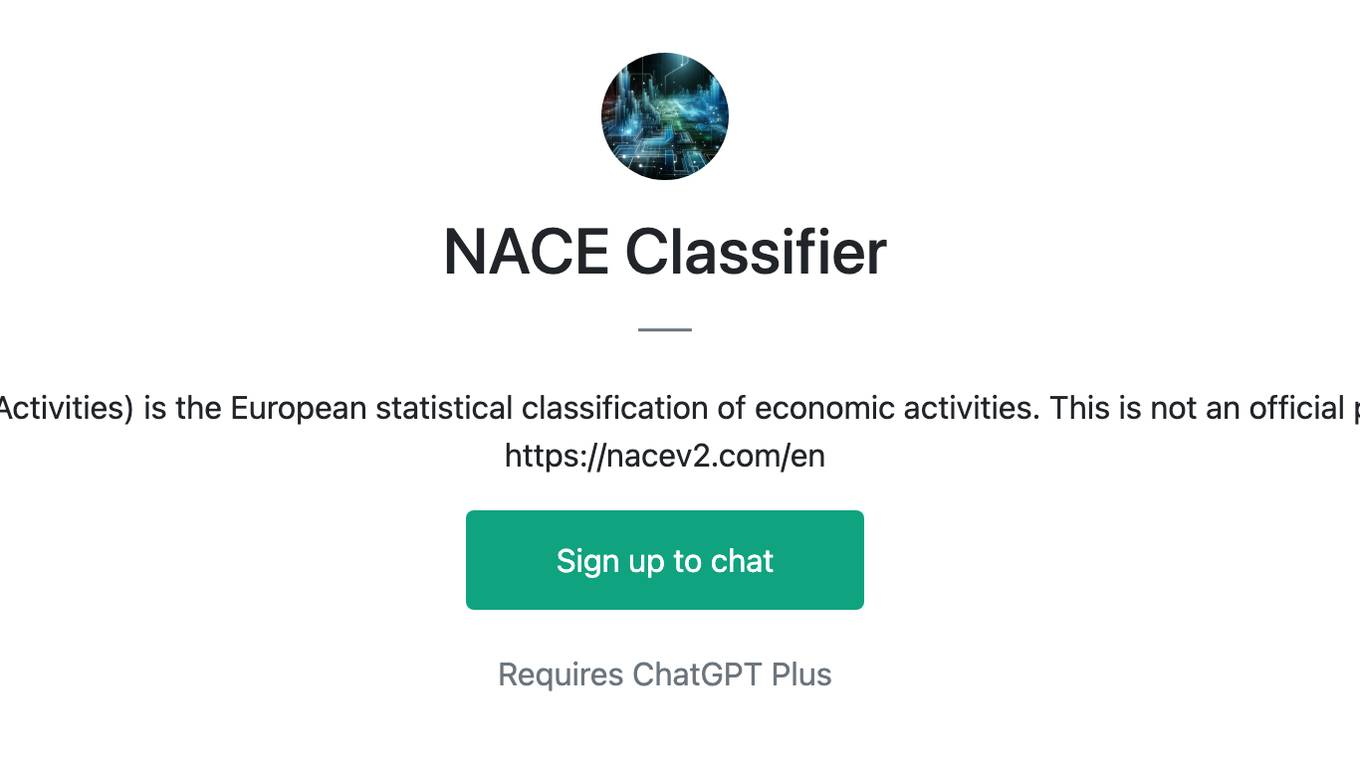
NACE Classifier
NACE (Nomenclature of Economic Activities) is the European statistical classification of economic activities. This is not an official product. Official information here: https://nacev2.com/en

TradeComply
Import Export Compliance | Tariff Classification | Shipping Queries | Logistics & Supply Chain Solutions
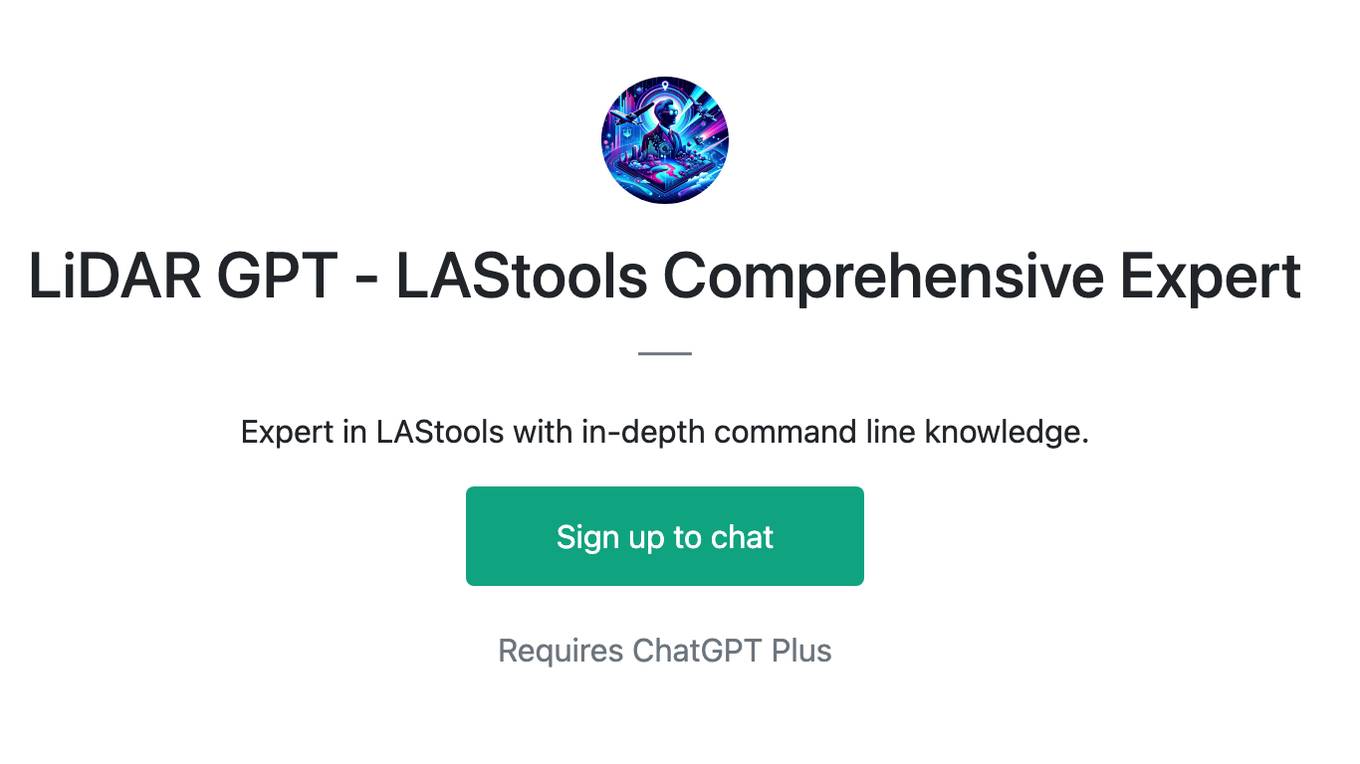
LiDAR GPT - LAStools Comprehensive Expert
Expert in LAStools with in-depth command line knowledge.
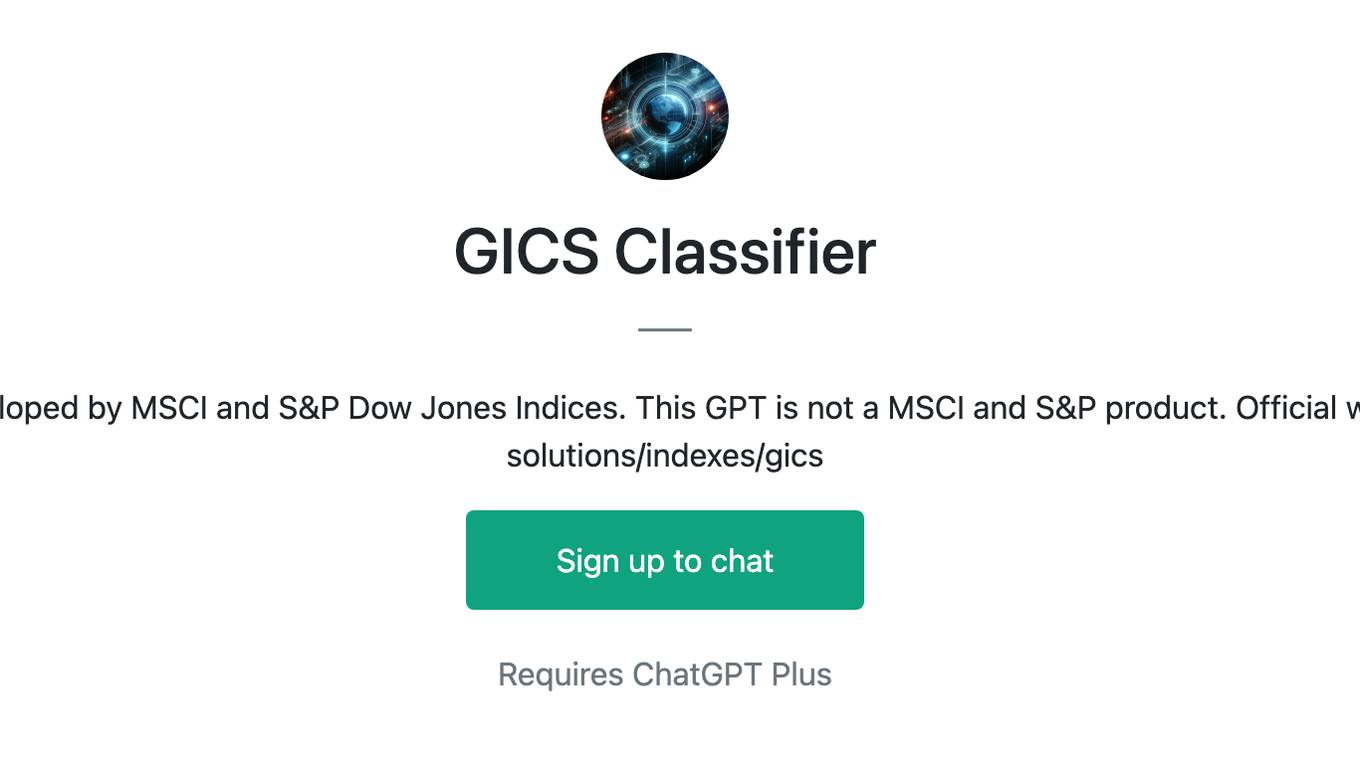
GICS Classifier
GICS is a classification standard developed by MSCI and S&P Dow Jones Indices. This GPT is not a MSCI and S&P product. Official website : https://www.msci.com/our-solutions/indexes/gics
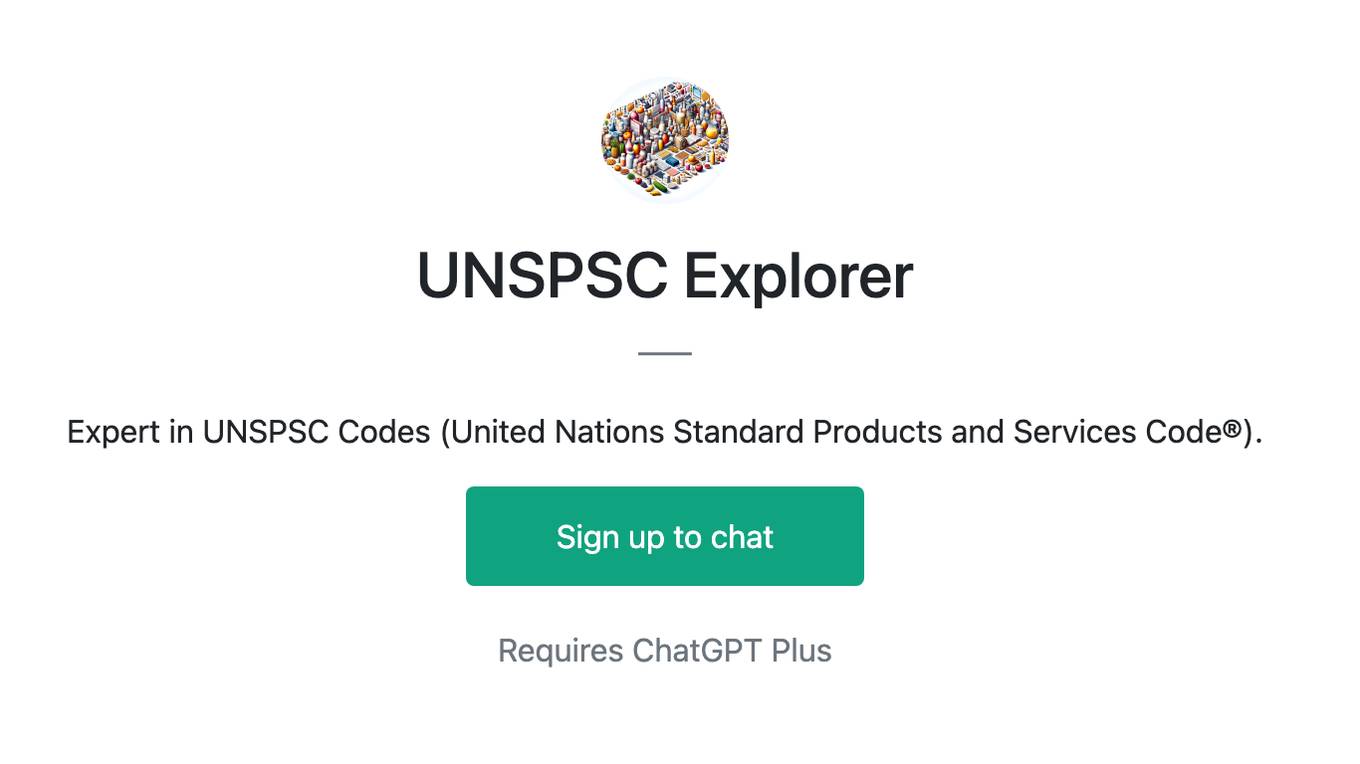
UNSPSC Explorer
Expert in UNSPSC Codes (United Nations Standard Products and Services Code®).
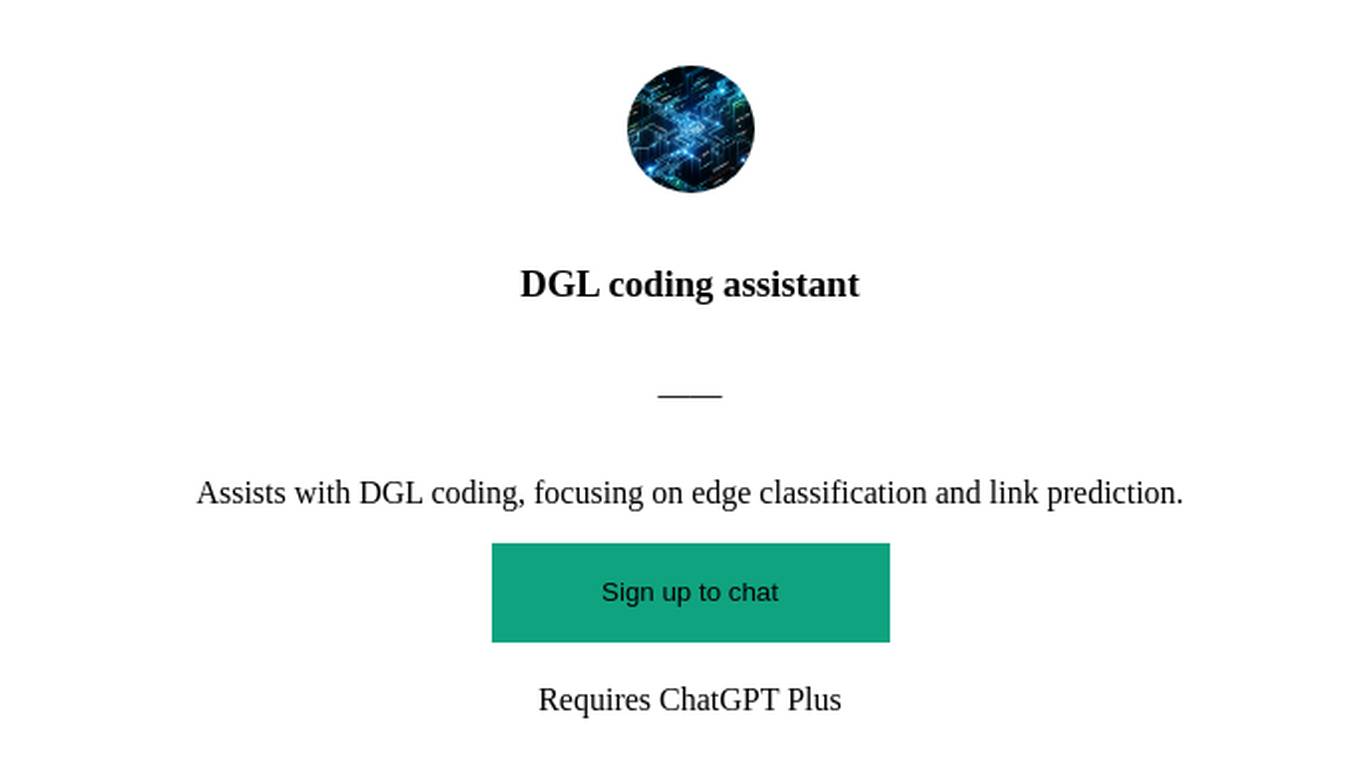
DGL coding assistant
Assists with DGL coding, focusing on edge classification and link prediction.
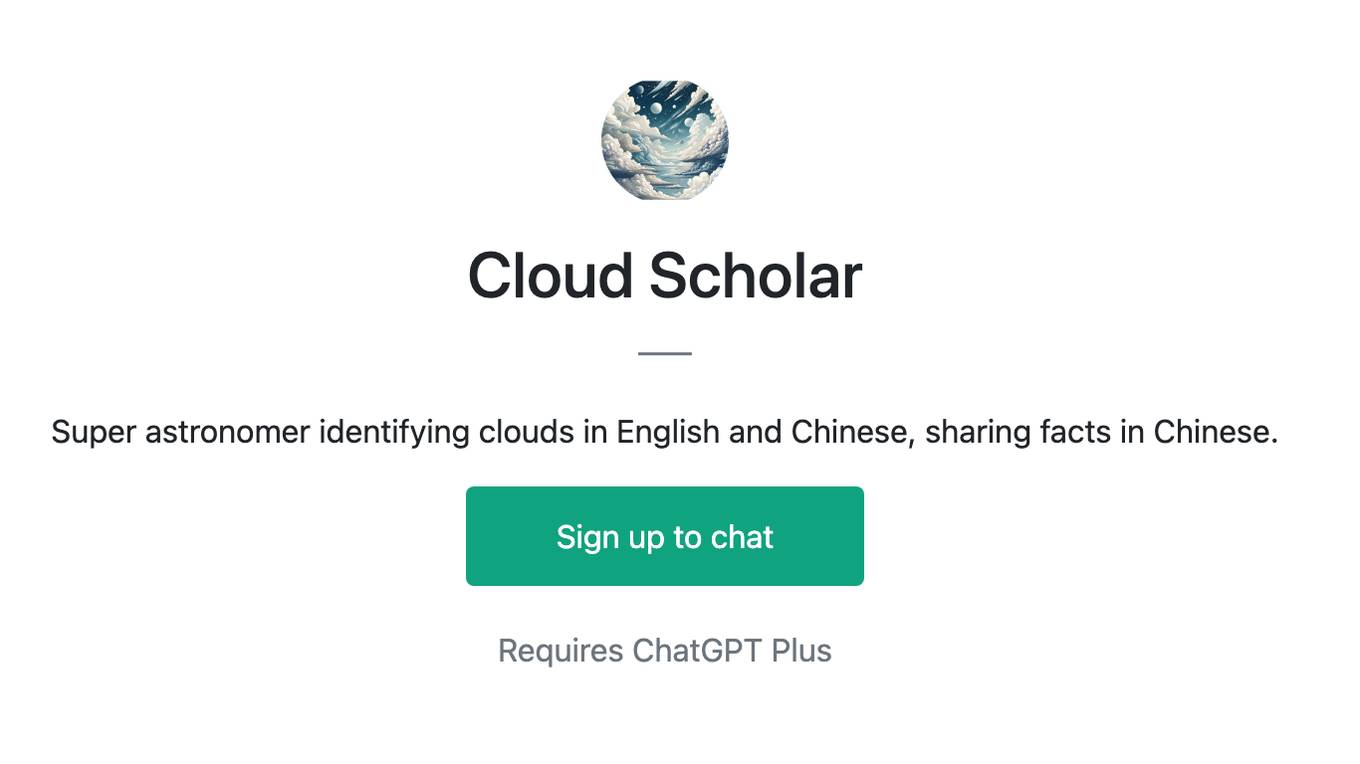
Cloud Scholar
Super astronomer identifying clouds in English and Chinese, sharing facts in Chinese.

